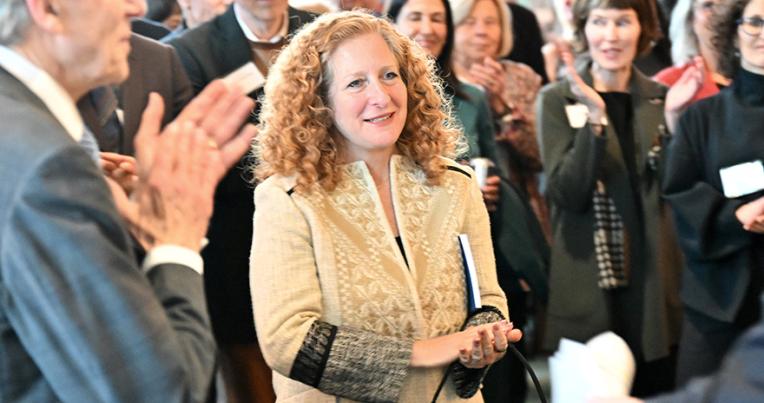Powering the Future: Digging into Critical Minerals, Supply Chains, and the Energy Transition
The Emmett Institute’s 2024 symposium explored the race for critical minerals and the energy transition. Countries are in a race for lithium, copper, cobalt, nickel, and other critical minerals needed to move away from fossil fuels. Elected officials, policymakers, and courts are at this moment struggling to strike the right balance between that energy transition and the importance of biodiversity, Indigenous rights, environmental justice, and equity.
Over the course of the day, our moderators and panelists from around the world helped us confront the policy drivers of this new mineral boom; governance questions related to supply chains; the rise of resource nationalism with its implications for the U.S. and the global order; and the risks to communities created by critical minerals mining as well as ways to reduce those risks.
Watch all the presentations and discussions below.
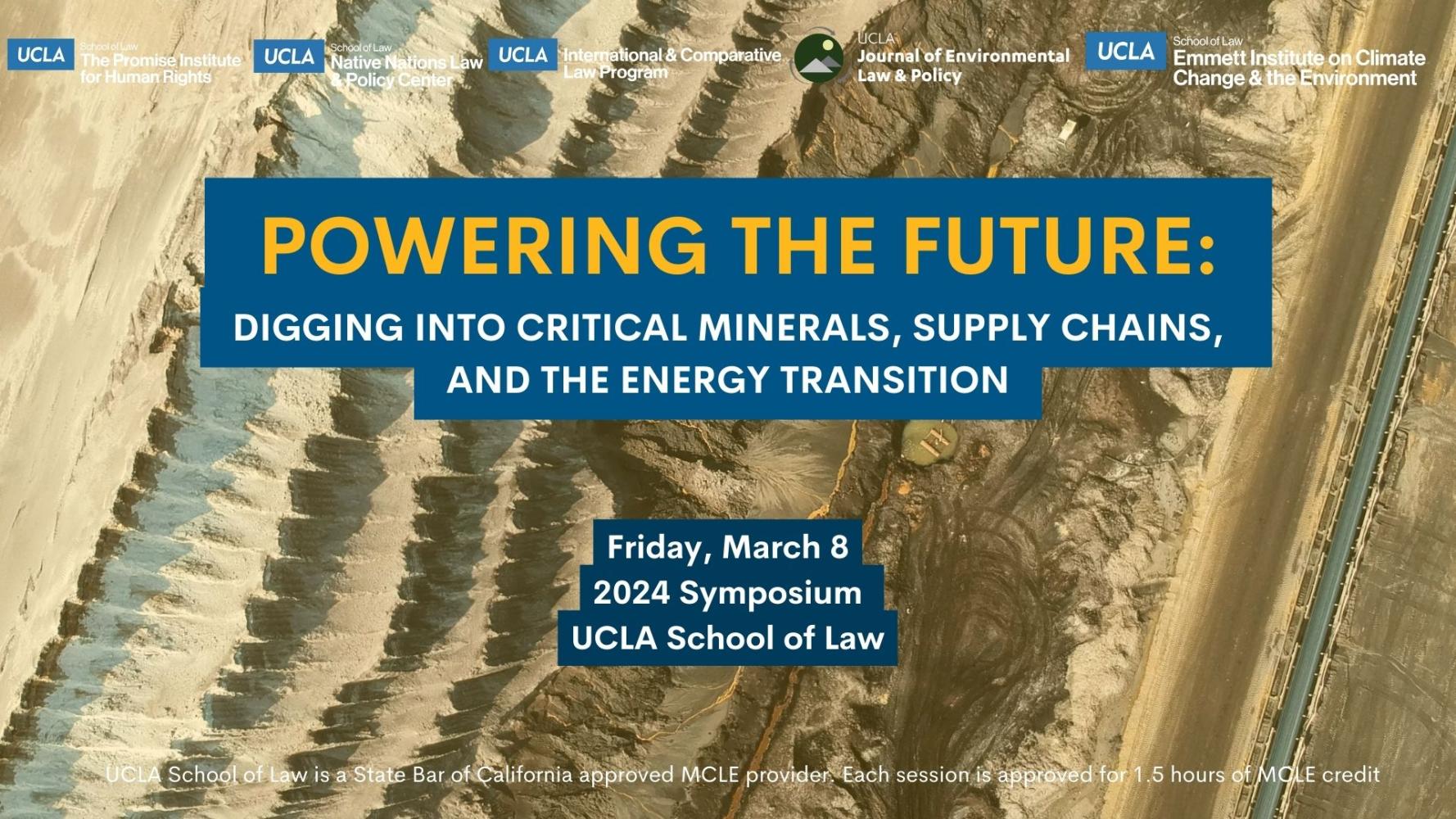
Keynote Address: Christina Snider-Ashtari, Tribal Affairs Secretary for California
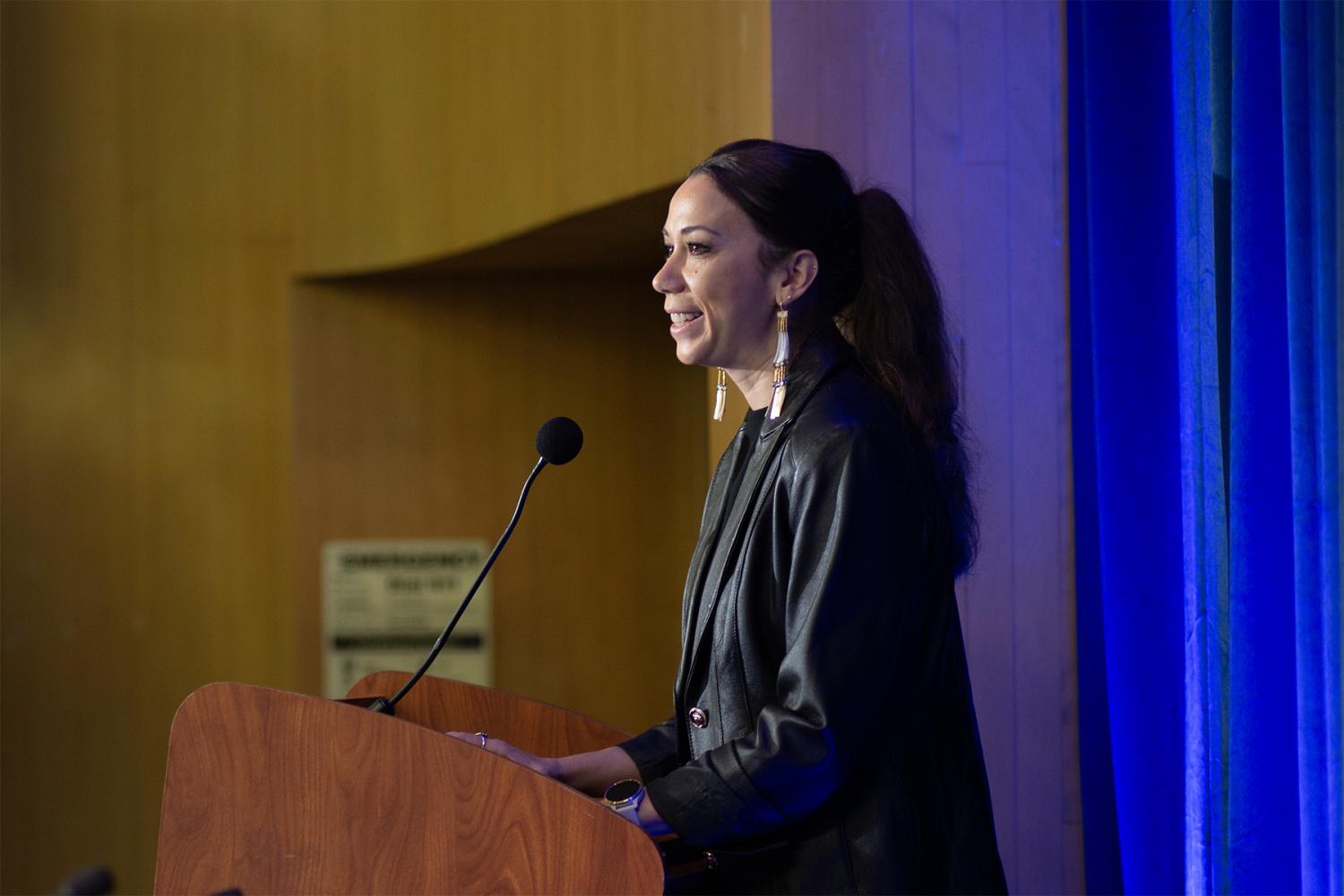
California Tribal Affairs Secretary Christina Snider-Ashtari gave the symposium’s keynote address and provided a crucial frame for the day’s discussions. She asked the audience to consider how the state of California, the U.S., and governments across the globe can pursue critical minerals without repeating the exploitative, violent practices wrought by previous extractive industries. WATCH THE KEYNOTE
Panel One: The minerals we need, why we need them, and why it matters
What are the critical minerals at the heart of the clean energy transition and where do they come from? What are the key domestic and international policy drivers behind their rising importance? And what are the potential environmental, social, and governance effects of their extraction, production, and distribution? This panel provides an overview of these topics to set a common ground for discussion on which the remaining panels build. Speakers cover some basics about critical minerals sources, mining techniques, and distribution. They also introduce key ideas concerning resource nationalism and the community impacts of these extractive processes. READ MORE
Eduardo Bitran, Professor of Economics and Member of Centro de Transición Energética, Universidad Adolfo Ibáñez, Chile.
Jennifer Turner, Director of the China Environment Forum at the Wilson Center
Fabian Villalobos, Full Engineer and Professor of Public Policy, RAND Corporation
Moderator: William Boyd, Professor of law and Faculty Co-Director of the Emmett Institute, UCLA Law
Panelist Slides:
Critical Minerals (Eduardo Bitran)
The Minerals We Need (Fabian Villalobos)
Luncheon Keynote: Trelynd Bradley, Deputy Director for Sustainable Freight and Supply Chain at GO-Biz
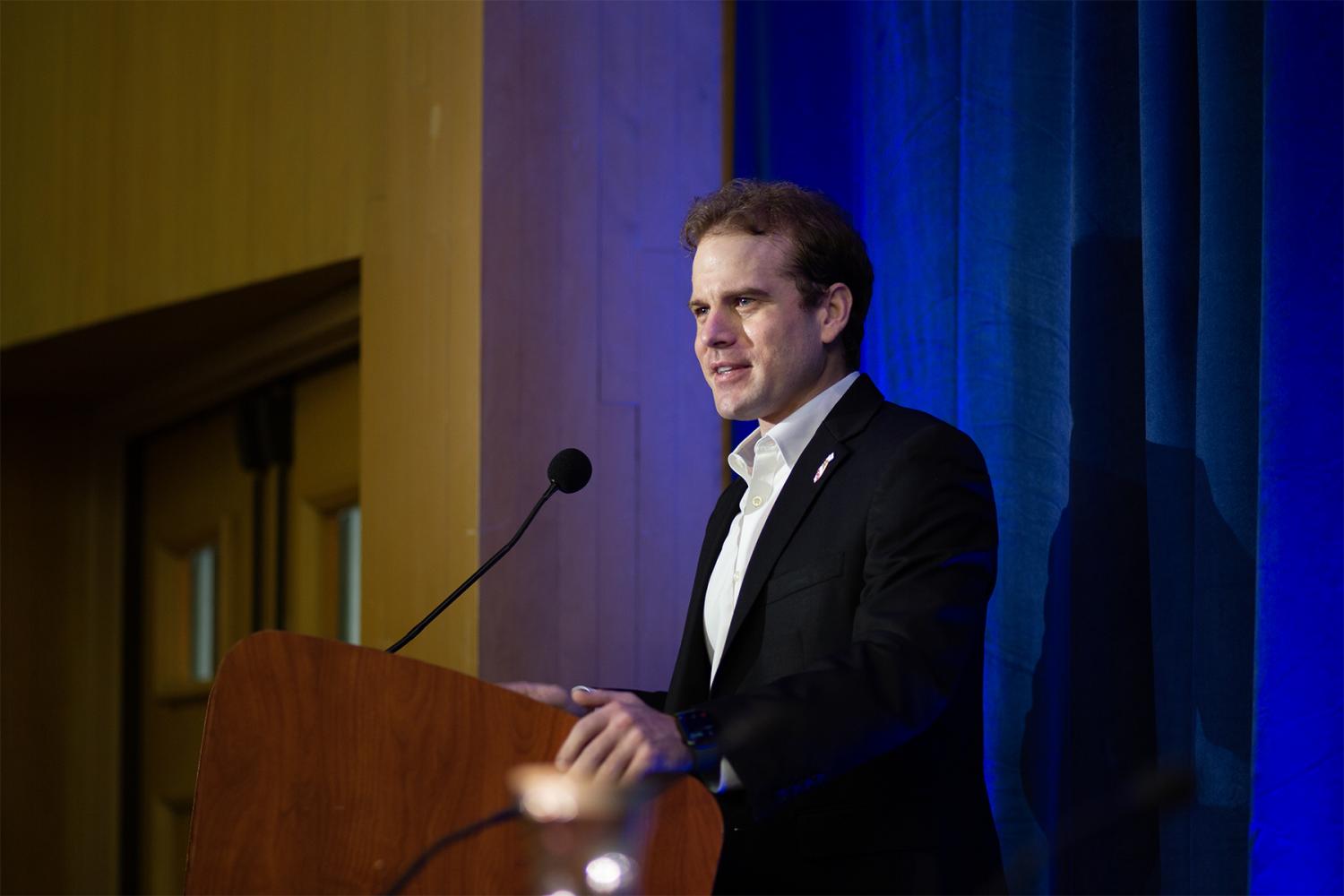
"In California, we've been working on this for a long time, this idea of rebuilding a critical material supply chain... We saw the long-term runway from a state government perspective. We saw the long-term value proposition for all those parties involved." WATCH LUNCH KEYNOTE
Panel Two: Critical minerals and global supply chains
Geopolitics are evolving rapidly around the supply and demand of lithium, nickel, cobalt, and other critical minerals. This panel looks at the global implications of production and supply chains, examining the key powers behind efforts to meet rising demands for these minerals. Speakers dive deeper into resource nationalism, with a focus on geopolitical maneuverings by China and other powers to control supply in the Global South and elsewhere. Panelists also address how multinational corporations plan to meet the rising demand for these minerals, and how governance of global supply chains can and should shift to reflect these dynamics and to reduce environmental and social harms. READ MORE
Gracelin Baskaran, Research director & senior fellow, Center for Strategic and International Studies
Anne Clawson, Principal at Cascade Advisory, head of Government Affairs & Public Policy
Ernest Scheyder, Author of "The War Below" and senior correspondent at Reuters
Jingjing Zhang, Executive director, Center for Transnational Environmental Accountability
Moderator: Alex Wang, Professor of law and Faculty Co-Director of the Emmett Institute, UCLA Law
Panel Three: Community impacts of critical mineral extraction
How can jurisdictions pursue this much-needed energy transition with a real commitment to environmental justice? This panel discusses impacts on the ground for communities surrounding critical mineral extraction and processing facilities, with a focus on historically disadvantaged communities, including Indigenous, low-income, and people of color. The panel utilizes case studies in Chile and around the Salton Sea to inform the discussion and develops ideas for reducing these harms to reduce the risk that this energy transition replicates many of the harms created by earlier industrial energy developments. READ MORE
Dr. Cristina Dorador, Microbiologist and associate professor, Universidad de Antofagasta
Luis Olmedo, Executive Director of Comite Civico del Valle, Inc.
Honorable Tomas Tortez, Jr., Chairman, Torres Martinez Desert Cahuilla Indians
Janet Wilson, Senior environment reporter for the Desert Sun
Moderator: Juan Pablo Escudero, Staff Attorney for the Emmett Institute, UCLA Law
Closing Remarks: Victor Ban, Special Counsel at Office of the U.S. Trade Representative
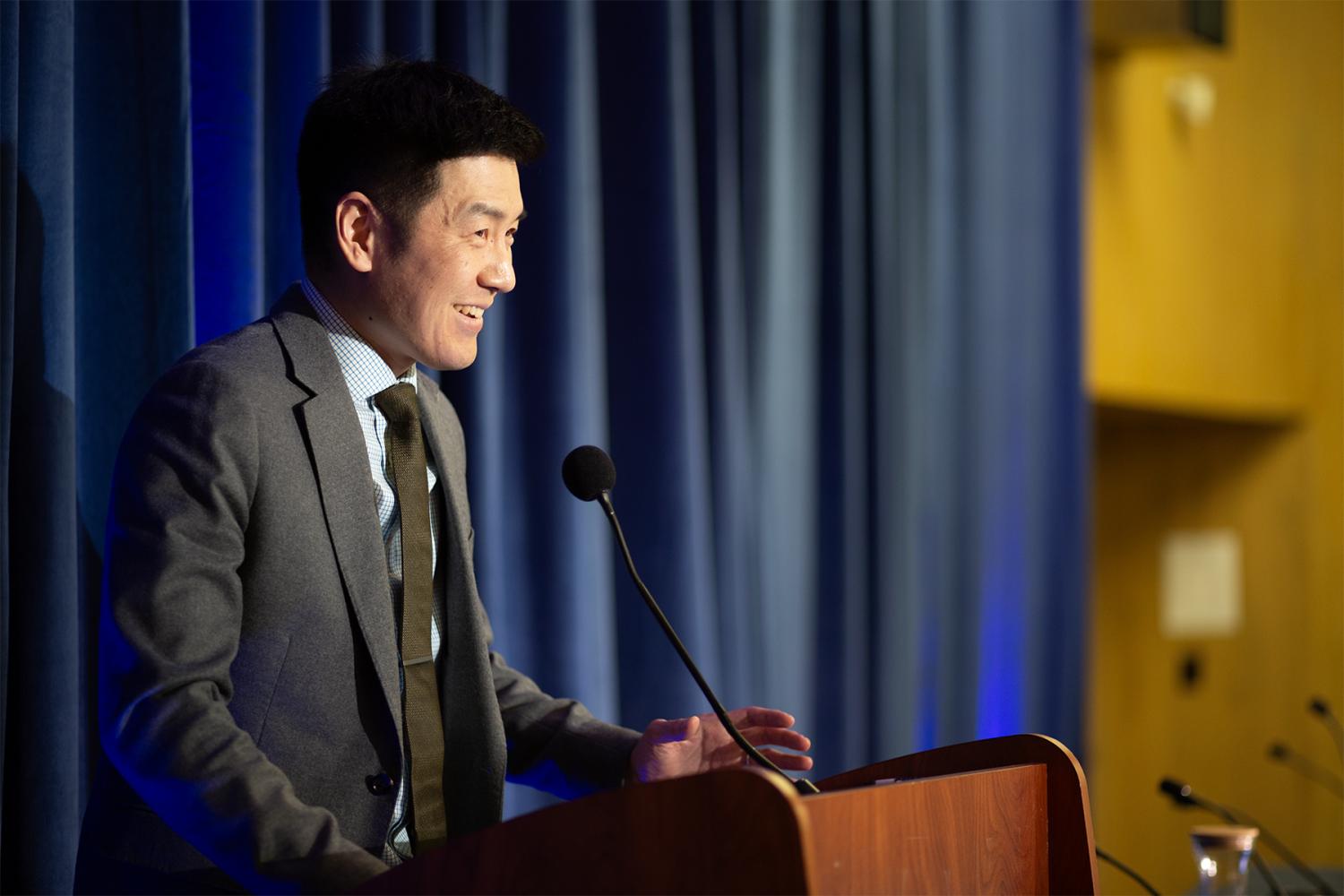
“Critical minerals are a great case study in how the U.S. Trade Representative is advancing supply chain resilience." WATCH THE CLOSING REMARKS
Photo credits: Tom Fisk and Maiz Connolly
